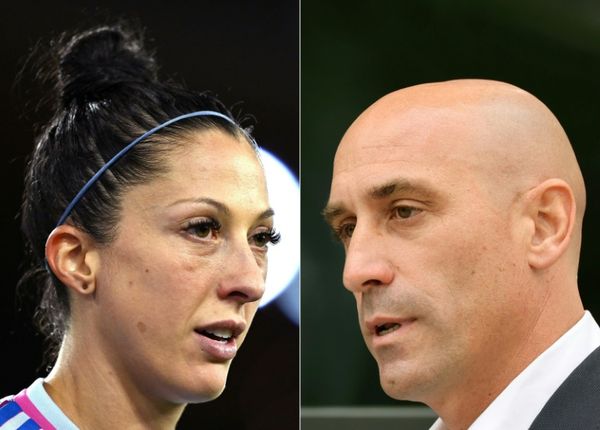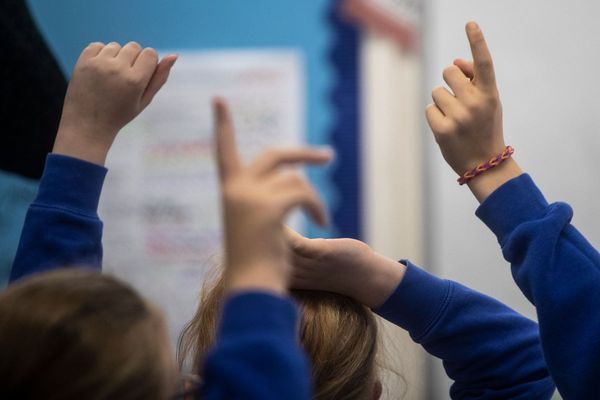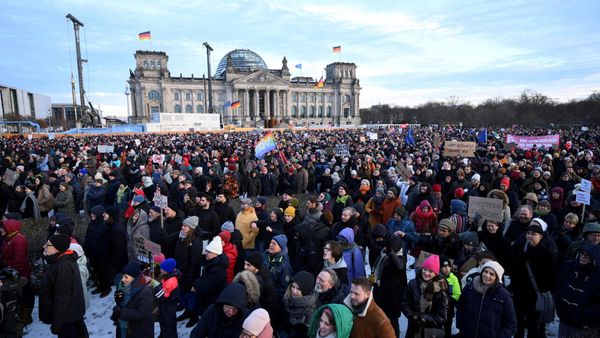
Australia now has a bipartisan policy to pretend to reduce immigration. Labor is targeting foreign students, mainly through making it harder to get visas, exterminating the fake vocational colleges that exploit the hybrid higher education-immigration system and, going forward, trying to cap foreign student numbers.
Peter Dutton also wants to cap foreign student numbers and proposes a relatively small reduction in permanent arrivals, and talks vaguely about getting more retirees to fill workforce shortages. He’s light on detail, but the opposition leader has been slammed for “dog-whistling” when he’s not offering something especially different from the government. He had a slip on Friday, when he implausibly said he’d reduce net overseas migration to just 160,000 (it was 240,000 when Dutton was in charge of immigration in 2018-19), which led to an hysterical response from business lobbyists worried they would not have access to an easily exploited workforce of non-English speakers lose access to skilled workers.
He was back on his talking points yesterday: asked about net overseas migration, Dutton trenchantly observed “net overseas migration obviously is a product of people coming in, and leaving. We have the settings in place, we’ve outlined them.”
Dutton’s the one saying he’s significantly different from Labor on migration, so he can put up with the accusations of racism etc — if anything, they might enhance his appeal to vociferously anti-migration voters, including in the 30% of Australians born overseas.
But as Ross Gittins correctly observed today, “pollies’ professed enthusiasm for cutting immigration is a lot stronger during election campaigns than it is after an election’s become a receding memory.” This is really about the embrace of the governing class of high levels of migration: to constantly expand domestic markets for business, to provide temporary workers to fill workforce shortages, to attract foreign students to fund the universities governments refuse to fund; to draw working holidaymakers to provide a cheap and abusable pool of labour for exploitive industries like agriculture.
But migration has become the exemplar of the core problem of neoliberalism for many voters: it is an economic system that yields benefits for governments and business, while voters wear the direct, and many of the indirect, costs, and feel they have no control and no certainty over issues like what the community they live in looks like, what access they have to infrastructure and services, whether their kids will be able to buy a house.
That’s why it was Pauline Hanson who, earlier than Labor or Dutton, cottoned onto the core of voter concerns about migration, saying last year it “benefits governments and big business but it’s not helping the Australian people, their way of life, their standard of living”. A large proportion of Australian voters have always disliked immigration. There’s nothing new in weekend polling showing a majority of people want less migration — the same media outlet found the majority of respondents wanted to cut migration in 2010, in the immediate aftermath of the financial crisis. Tougher economic conditions make people more tribal and more hostile to migration. It’s unsurprising that with a cost of living problem, higher interest rates and a housing crisis, voters are back to viewing migration in negative terms.
What migration also exemplifies is how much more complicated policy becomes in the aftermath of globalisation. As Peter Mares pointed out yesterday in Crikey, much of our migration program is demand-driven, rather than a mechanical system minutely controlled by policymakers. That’s a deliberate choice reflecting that we want to draw in foreign workers and sell education to foreign students. The immediate problem is that it is inconsistent with the housing crisis that has developed from policy failures in taxation, planning, building regulation, infrastructure provision and social services.
The “solutions” have the same problem. Cutting migration will increase workforce shortages, especially in key social services. Dutton, without realising it, summed this up last week when in his budget reply he complained that too much migration meant people couldn’t see a GP, but also that Australia “needed more GPs”. Where will they come from? Over 50% of Australian GPs are from overseas now, and the number of GPs with foreign qualifications is growing much faster than GPs with local quals. In this case, more migration is exactly what will make the economic system work better for ordinary voters.
Migration is one strand in a spaghetti junction of policies, many of which have been botched over decades. It’s no surprise that both sides of politics prefer simple solutions over fixing problems they’ve allowed to fester for decades.







